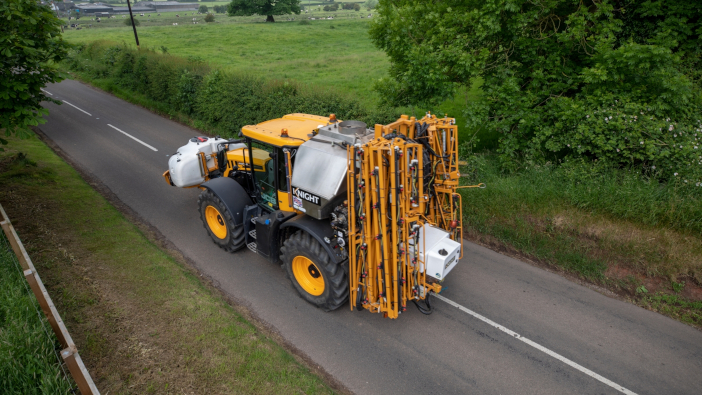According to John Wooding, technical sales manager at Knight Farm Machinery, growers should spend some time checking over their sprayers before heading into oilseed rape crops this season.
“While the oilseed rape area has dropped back, it’s still a significant UK break crop, and desiccation remains the best way of speeding up plant ripening to match seed maturity,” he said. “But good sprayer preparation is critical to ensuring desiccants are thoroughly and evenly applied for best results.
“Ensure your machine is well-prepared, with the correct pressures for the tyres fitted, on the tractor as well as the sprayer if you are using a trailed machine. If you are not using a GPS-based rate controller, also ensure your sprayer is calibrated correctly according to the wheels fitted. Make sure belly sheets are in good condition and securely fitted, and that any tines fitted to the boom to prevent ends touching the ground earlier in the season are removed so the crop does not snag on them – we repair three or four boom sections each year damaged this way.
“Check you are using the best nozzles for the job, and have selected the best rate for the product and the density of the crop. Once in the field, check the boom height is right for the crop – low enough for good desiccant penetration but with sufficient clearance to guard against crop or sprayer damage.
“Once work is done, ensure all plant material and residue is cleaned off in the field, the sprayer is washed externally, and that internal sprayer cleaning is thorough, adding a recommended cleaning product at the recommended rate to a tank of clean water. This will ensure no desiccant remains, and also help keep sight gauges clear, as these can become clouded from residue if pod sealant has been used.”
For more information go to www.knight-ltd.co.uk


